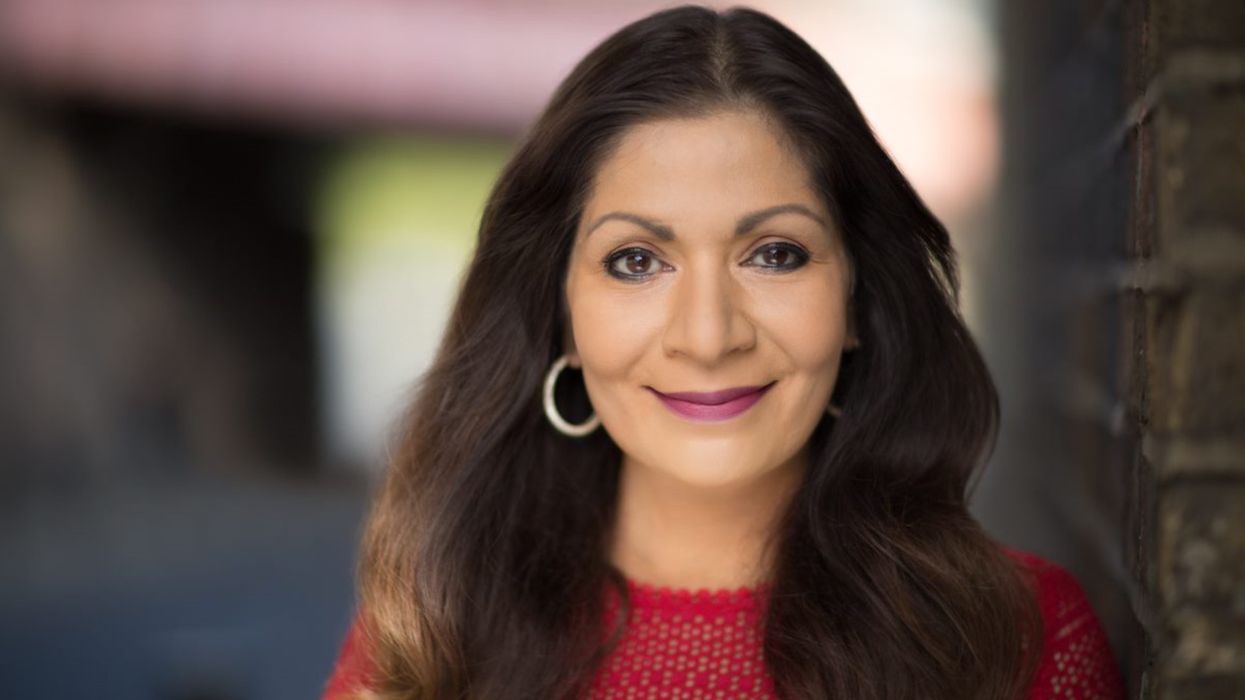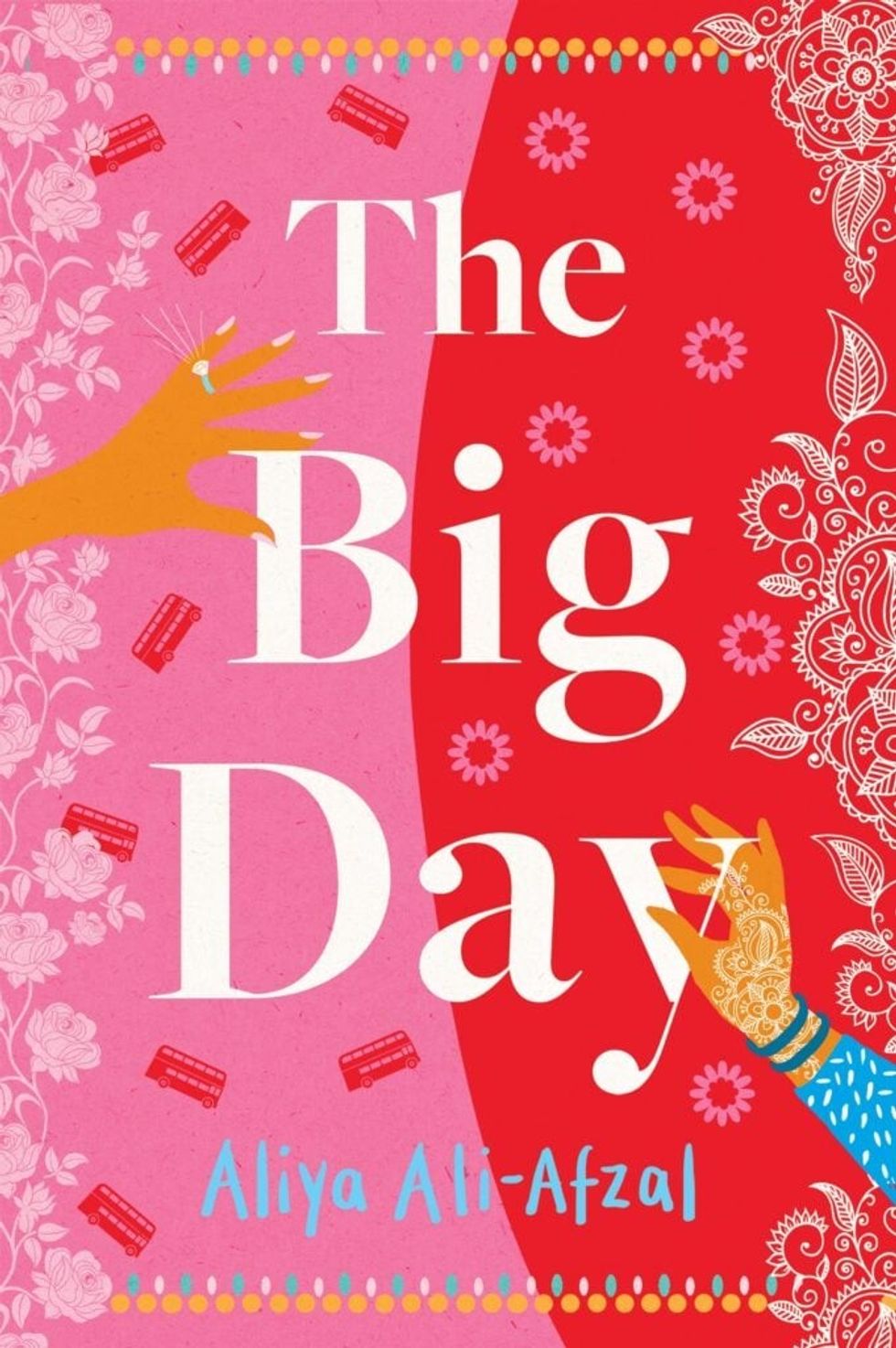THE pressure of delivering best-selling debut novel Would I Lie To You doesn’t seem to have affected Aliya Ali-Afzal.
The talented author has followed up that fabulous first effort with her newly published book The Big Day, another immersive novel filled with relatable moments. The story of unexpected events leading up to a wedding day demonstrates once again that she has a strong ability to connect situations, characters, and emotions to a wide array of cross-cultural readers, from all age brackets.
Eastern Eye caught up with the unstoppable author to discuss her successful writing journey, new book, key messages it conveys and how she used personal experiences for the story. She also spoke about her creative process, character development and sweet method of overcoming writer’s block.
How much did the overwhelming success of your debut novel mean to you?
It was an incredible feeling, especially as I had not really expected any of it. My book was in shops all over the world and iconic writers like Sophie Kinsella were praising it. Best of all, readers, complete strangers said they loved my book, staying up till 2am reading it. It was better than any daydream.
Did that success put pressure on your next book?
Massively. I wrote Would I Lie To You with no one to please but myself. This time, I was conscious of not disappointing my readers, agent, or editor. At the same time, the positive reviews of my first book gave me the confidence that maybe I did know how to write a book again after all.
What inspired you to start writing the story of your new book?
I was shocked at how something as simple as a wedding can cause so much conflict, stress, financial worry and immense pressure to please everyone, especially in desi weddings. A happy time can easily escalate into family clashes and expose long suppressed cracks in relationships. I started to imagine what could go wrong and then I couldn’t stop myself.
Tell us about your new book.
Noor is excited to be planning her wedding to Dan but her OTT desi mum-zilla Leena thinks she knows what’s best for Noor’s wedding and her life. I wanted to explore the push and pull we feel between pleasing our parents and being true to ourselves. It’s also a roller-coaster countdown to the wedding day, complicated by Noor going on a quest to discover the truth about her parents’ marriage, which could end up threatening her own future.
How does this book compare to the first one?
In both books, I have complex female leads and explore how they react when the stakes in their lives and relationships are high. I love that readers have described both books similarly: page turning, emotional, funny, and intelligent.
Did any personal experiences or real-life events significantly influence the book?
Yes, my own wedding experience. I wanted to get married on top of a hill in Hawaii, wearing a grass skirt, but my parents organised a weeklong desi extravaganza with hundreds of guests. Looking back, I realised this wasn’t just about the wedding but my lack of confidence in using my voice and directing the course of my life.
What is your favourite part of the story?
I love Noor and Dan as a couple and their relationship, especially the way Dan has gained Noor’s trust despite her life-long apprehension about marriage.
Who are you hoping will connect with your new novel?
I have a broad range of female readers in terms of age and both women of colour and white readers. If you like books by Marian Keyes and Lianne Moriarty, and if you enjoyed Crazy Rich Asians, Father of The Bride and My Big Fat Greek Wedding, you would also enjoy The Big Day. I hope British-Asian readers enjoy the realistic, non-stereotypical representation and everyone likes the intergenerational dynamics. I also recommend it as a mother-daughter buddy read, especially if wedding planning.
What is your writing process?
I think of the main character first and then everything else starts to come alive. As I love my books to be full of suspense, I plan the plot meticulously, especially the unexpected twists.
How do you handle writer’s block?
Eating a lot of pistachio ice cream and allowing myself to write anything. Even if it’s not perfect, I know I can edit whatever I write later.
How do you develop your characters?
It feels like meeting a new person. We develop a relationship and I start to discover who they really are, their secrets, past and motivations. This is one of my favourite parts of writing.
What specific challenges did you face while writing this story?
I wrote this book during a very difficult time in my personal life and felt guilty at missing some deadlines for my publishers. However, whenever I was writing, this book also became my escape and refuge. I loved hanging out with these characters and wedding planning with them. It was the perfect alternate reality to get lost in.
Are there any particular themes or messages you hope readers will take away from your work?
A key theme is freedom. I hope it prompts readers to think about how to live a life where you are free to be yourself; whether living between two cultures, pursuing dreams that feel authentic despite resistance and achieving freedom from past hurts, especially generational scars.
What can we expect next from you?
I can’t say much, but my goal is to always be entertaining, thought-provoking and keep readers fully engaged.
The Big Day by Aliya Ali-Afzal is published by Aria (Head of Zeus) and available now in UK in paperback, eBook and audio, online and all good bookshops





